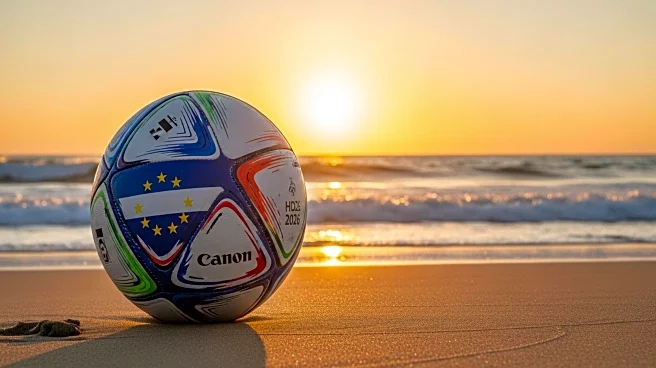What's Happening?
Cape Verde has secured its place in the 2026 FIFA World Cup after defeating Eswatini 3-0 in the African qualifying rounds. This victory marks Cape Verde's first-ever qualification for the World Cup, making it the second-smallest country by population to participate in the tournament, following Iceland's entry in 2018. The match saw goals from Dailon Livramento, Willy Semedo, and Stopira, ensuring Cape Verde topped Group D with four points more than Cameroon, which drew 0-0 with Angola. The 2026 World Cup will feature an expanded field of 48 teams, up from the previous 32, allowing more nations to compete on the global stage.
Why It's Important?
Cape Verde's qualification for the World Cup is a significant milestone for the nation, highlighting its growing presence in international soccer. This achievement not only boosts national pride but also has potential economic benefits, as increased visibility can attract tourism and investment. The expanded format of the 2026 World Cup provides smaller nations like Cape Verde an opportunity to showcase their talent on a global platform, potentially inspiring future generations and fostering development in sports infrastructure and youth programs.
What's Next?
As Cape Verde prepares for its debut in the World Cup, the nation will likely focus on strengthening its team and strategy to compete against more experienced teams. The government and sports authorities may invest in training facilities and programs to enhance player performance. Additionally, Cape Verde's participation could lead to increased interest and investment in soccer within the country, promoting sports as a means of national development and unity.
Beyond the Headlines
Cape Verde's entry into the World Cup could have broader cultural implications, fostering a sense of unity and national identity through sports. It may also encourage other small nations to invest in sports development, seeing the potential for international recognition and success. The event underscores the importance of inclusivity in global sports, allowing diverse nations to participate and contribute to the cultural richness of international competitions.











